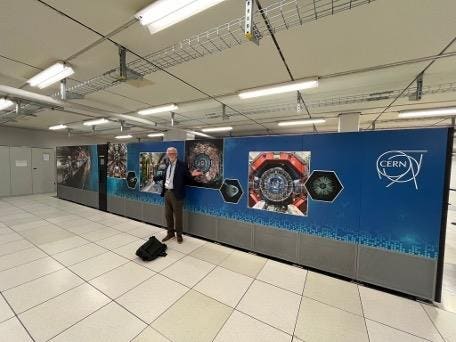Can AI agents help?
Lately, there’s been a lot of attention on the “solopreneur,” or one person building a scalable business using digital tools and platforms to conduct business operations. It’s even suggested that we may soon see a $1 billion company built and run by a solopreneur. Is this sustainable? Can one person – or a very small team – really do it all, with assistance from an army of AI agents?
There are a lot of extremely small, well-funded, and ambitious businesses out there. In the United States alone, there are at least 10,000 companies with fewer than 10 employees that have received substantial investments or venture capital funding in the millions of dollars, according to estimates in Crunchbase.
One can, at least in theory, build a fairly large company with little or no human help, according to leading solopreneur proponent Tim Cortinovis. It is possible to build a huge, competitive company with just AI tools and freelancers, he explained in his recent book, Single-Handed Unicorn: How to Solo Build a Billion-Dollar Company, as well as a recent podcast. With the assistance of AI agents, “you can handle everything,” he said.
The idea of a small but profitable enterprise built around digital technologies has been bubbling up for some time now. Back in 2009, New York Times columnist Thomas Friedman was calling it an element of the “Do-It-Yourself economy,” in which entrepreneurial or corporate types could pluck the online services they need off the internet to launch new products and services.
How has this changed over the past decade and a half? Across the industry, especially among entrepreneurs themselves, there is agreement that large-scale solopreneuring is now possible, but with caveats.
“The entrepreneurs of the past needed grit. The entrepreneurs of today need architecture,” said David Brudenell, executive director at Decidr.ai, Australia’s only publicly listed AI company. “If you can design a business where data generates insight, insight triggers action, and action loops back into performance, all without human friction, then you’re no longer constrained by size. You’re only constrained by your imagination.”
While the idea of a large business run by a solopreneur or very small team is attainable, “it’s not for everyone and not in every niche,” said Alexandr Korshykov, founder and CEO of DreamX, a Ukrainian UX/UI design and development company. “Today, thanks to AI, automation, and global access to markets, it is possible to build a large-scale company with a small team or even solo. My company works with startups and we see how individuals creating SaaS products, managing e-commerce empires, and launching EdTech platforms – all while keeping team costs minimal.”
A leader can’t afford to step back and put their business on autopilot, however, Korshykov cautioned. “You need to have a clear vision, systematic thinking, process management skills, strong self-management, and a willingness to delegate technical tasks to machines and routine tasks to freelancers or a micro-team.”
AI – in particular, agentic AI – is taking self-sufficiency to the next level, Cortinovis suggested. It starts with having one managing agent, acting as a supervisor and “the brain of the others. You have subagents on the way down, and you can give the subagents access to client information, client addresses and so on.”
And presto! A growing scalable business. But is it sustainable? “AI is undoubtedly removing many of the barriers to scaling a business with limited resources,” said John Jackson, a seasoned entrepreneur and founder of Hitprobe, a fraud-protection platform. “But it’s unlikely we’re going to see many one-person unicorns.”
What is more likely, Jackson continued, “is that we will start to see very lean businesses with small teams as small as three to five people scaling to levels that would previously have required an entire workforce.”
Initially, these are likely to be technology or SaaS companies, “but there are also potentially some huge opportunities for disruption in more traditional sectors, such as audit and compliance, which could see tiny companies competing against large established organizations,” Jackson added.
Support for the growth of these very lean companies “will be enabled by the smart use of AI tools for everything from customer support and automated marketing platforms to low-code product builders and scalable cloud infrastructure,” he said. “The winners will be those that are able to use these tools to give them a competitive edge by enabling them to scale without increasing their workforce, and giving them the ability to act with far more speed and agility than much larger companies.”
With current technologies – cloud, AI, low-code tools, and other tools – “a single founder can move faster and scale further than ever before,” said Eli Goodman, CEO and co-founder of Datos, a Semrush Company. “But building a billion-dollar business still requires a combination of product-market fit, relentless execution, and a bit of luck. The decisions, relationships, resilience, and so many other human components can’t be automated.”
What’s often underestimated is “how many other people, directly or indirectly, contribute to the outcome,” Goodman pointed out. “You might not have full-time staff, but you’ve got contractors, advisors, legal, maybe even immigration lawyers, depending on how you’ve built your team. The myth of doing it completely alone doesn’t hold up when you’re actually in it.”
It’s up to human professionals to oversee “operations, sales, compliance, and product” from a strategic perspective, Goodman added. “Yes, you can automate execution, but you can’t automate judgment.”
That’s because “AI is not always reliable yet when it comes to high-level analytics, emotional interaction with clients, or handling unpredictable situations,” Korshykov explained. “For example, content generation without editing is often superficial or off-target. There are still challenges with fully automating legal processes, financial audits, and strategic consulting. Additionally, data security and privacy issues often become blockers for scaling, especially in regulated industries.”
You can have all the state-of-the-art digital technology in the world, but nothing can succeed without a human’s will to succeed. “What’s most important isn’t the tool; it’s time management and prioritization,” said Goodman. “You can outsource tasks, but you can’t outsource your ability to discern what actually matters. The founders who succeed are those who know when to delegate and when to dig in. So yes, solo entrepreneurship is more viable than ever, but billion-dollar companies? Those still require a system of people, whether they’re on payroll or not.”
The difference now – versus a few years ago – “is the convergence of foundational models, agentic frameworks, and cloud-native infrastructure,” said Brudenell. “We finally have tools that can reason, act, and scale autonomously. The only question is whether we have the vision to build alongside them?”









